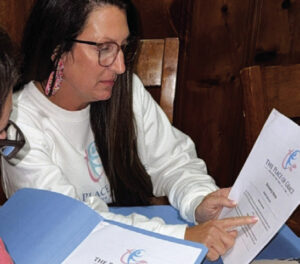What to do when you find a bee tree
By By Otha Barham / outdoors editor
July 26, 2002
Everyone knows that out there in the wilds there are things that will get you. For most of us, fear of the woods began when we were toddlers with the story of Little Red Riding Hood's tribulations with the Big Bad Wolf. We haven't forgotten.
Well there are also some little bitty things out there that will get you too. An example are the Killer Bees. There. I said it. I would never have used the K-word while I was the U.S. Department of Agriculture's national operations officer for its Africanized honeybee program. Too alarming for public consumption and not an accurate adjective anyway because any bee can kill you; the Africanized variety are just more likely to do it.
This fascinating insect (all insects are, by the way) got that way by evolving in Africa where the weather and habitat are harsh. They grew up tough and they stayed that way. Some were brought to South America by a scientist interested in their good characteristics namely aggressive honey production and they escaped his cages and interbred with wild bees and eventually domesticated bees. These "Africanized" bees spread northward, buzzing past traps and other roadblocks we set for them in the narrow land strip around the Panama Canal.
The Africanized bees so saturated the land at our border with Mexico that though we caught thousands of their colonies and killed them, enough survived to infest Texas and then New Mexico, Arizona and now California. The bad news is that Africanized honeybees can adapt to the weather and habitat of the southeastern United States. They prefer drier climates, but they have prospered in balmy conditions in many areas of South and Central America. They will set up housekeeping here whenever they get around to it.
Kill them all?
Why doesn't the government just kill them? you might ask, as have thousands of others. Well, for one thing, the enemy here is not an insect. It is the genetics within an insect species. All honeybees, both wild and domestic, are susceptible to the dominant aggressive genes of Africanized honeybees. And it takes only months for colonies to become Africanized. We must have our commercial bees to pollinate our crops. It's that way with all things of divine origin, there is always some good there along with the bad (for us) characteristics.
Though we probably could do without honey, if we killed all our bees we would put all beekeepers out of the business of honey production and crop pollination a big industry.
Another roadblock to eradication is the fact that, as some scientist once said, "We could eradicate the human race easier than we can eradicate an insect species." I might challenge that statement if only I knew of a successful eradication of an insect pest species anywhere in the world. It's hard to get them all folks. Very hard.
So what does all this have to do with us outdoor enthusiasts? Africanization in our honeybee populations will arrive by natural spread from the west or by being transported by humans into our area. Either way, our wild colonies will eventually all be Africanized. Certain persistent breeding techniques can keep commercial bees relatively free of the unwanted gene. But wild colonies will have no defense.
Wild encounters
Campers, hikers, hunters, anglers and anyone frequenting the outdoors will be more likely to encounter wild honeybee colonies, either in swarms or in "bee trees." And make no mistake, these bees will not be like wild bees of old. Sometimes the slightest provocation will cause them to attack. And once they come at you, your chances of escaping are next to zero. They won't give up the chase and there are usually enough bees to sting you to death. You must elude them.
How many wild colonies are in the woods? In my work with the world's foremost honeybee researchers, many facts that I learned astounded me. One was just how many wild swarms exist in typical woodlands. Of course the number varies due to many factors, but the average was ten times what I would have guessed.
The venom of Africanized bees is the same as other honeybees. But their aggressiveness results in victims being stung many more times, often many hundreds of stings. Depending on body weight and other factors, a few hundred stings can be fatal. Accurate information from countries to the south is hard to obtain, but Africanized bees have killed hundreds of people, several in the United States already. Attacks occur frequently when a swarm is disturbed by a lawn mower or tractor. They have killed more animals than people especially dogs and other domesticated animals.
Still, your chances of dying from an Africanized honeybee attack is quite small, but these little pests are very dangerous. So if you travel to the above states for outdoor activities, be sure to leave honeybees alone. And it's a good idea to begin the practice of avoiding wild bees here too because we don't know just when the first mean guys will appear. I offer this slogan be alert for bees and leave them alone.













